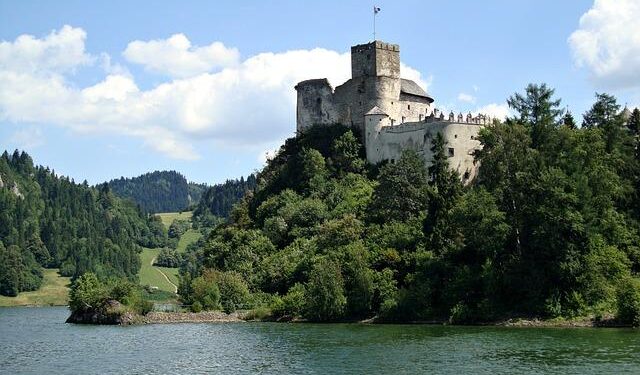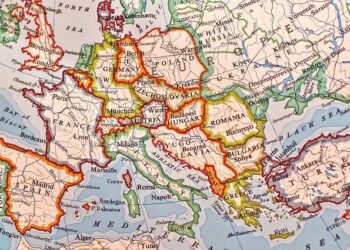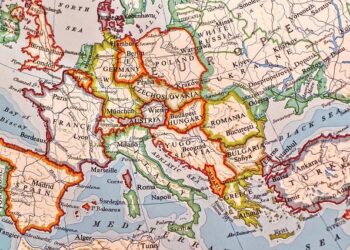Poland has formally summoned the Israeli ambassador following a controversial social media post by Yad Vashem, Israel’s official Holocaust remembrance center. The move underscores rising tensions between the two countries over differing narratives and interpretations of World War II history. This diplomatic development comes amid ongoing disputes regarding Poland’s role during the Holocaust and has prompted reactions from political leaders and experts on both sides.
Poland Condemns Content of Yad Vashem Holocaust Post Prompting Diplomatic Tensions
In a recent diplomatic move, the Polish government officially summoned the Israeli ambassador to express its strong disapproval concerning a controversial post made by Yad Vashem, Israel’s official Holocaust memorial. Polish officials criticized the content for what they described as an inaccurate portrayal of Polish history during World War II, emphasizing that it unfairly implicates Poland in Nazi atrocities. The incident has intensified tensions between the two nations, already sensitive due to ongoing debates over historical memory and legislation related to Holocaust narratives.
Key points raised by Poland include:
- Condemnation of perceived distortions regarding Polish involvement in the Holocaust
- Calls for mutual respect in representing shared history
- Demand for Yad Vashem to revise or clarify the contested post
- Reaffirmation of Poland’s commitment to honoring Holocaust victims while defending national historical integrity
| Issue | Poland’s Position | Yad Vashem’s Response |
|---|---|---|
| Historical Accuracy | Rejects blame shifting | Defends narrative as factual |
| Diplomatic Impact | Summoned Israeli envoy | Calls for dialogue |
| Future Cooperation | Requests mutual sensitivity | Agrees on joint educational efforts |
Analysis of Historical Narratives Fueling Poland Israel Dispute Over Holocaust Representation
The escalating tensions between Poland and Israel over the portrayal of the Holocaust stem from competing historical interpretations that shape national memories and identities. Poland has consistently emphasized the narrative of its own suffering under Nazi occupation, asserting the nation’s victimhood alongside the Jewish community. In contrast, Israeli narratives underscore the centrality of Jewish experiences and the specific targeting of Jews for extermination. This divergence fuels ongoing disputes regarding responsibility, complicity, and commemoration. Polish officials strongly criticize what they perceive as a diminishing of Polish suffering by some Israeli institutions, particularly when historical accounts do not sufficiently acknowledge Polish resistance or losses.
At the heart of these disagreements lies a complex matrix of historical narratives, which can be broadly categorized as follows:
- Polish National Narrative: Focuses on Polish victimization by Nazis and Soviet forces, highlighting resistance efforts and the suffering of ethnic Poles.
- Israeli Holocaust Discourse: Centers on the Jewish genocide with emphasis on the scale and uniqueness of the Jewish tragedy during World War II.
- Controversies over Terminology: Debates over phrases like “Polish death camps” have inflamed passions, with Poland advocating for precision to avoid conflating Polish victims with Nazi perpetrators.
These differing historical perspectives often manifest in official statements, museum exhibits, and educational materials, underscoring the sensitivity and political dimensions surrounding Holocaust remembrance on both sides.
| Aspect | Poland’s Viewpoint | Israel’s Viewpoint |
|---|---|---|
| Victimhood | Shared suffering under Nazi and Soviet occupations | Unique Jewish genocide and annihilation |
| Responsibility | Focus on Nazi perpetrators, rejection of Polish complicity | Calls for acknowledgment of local collaborators |
| Commemoration | Emphasis on Polish resistance and heroism | Emphasis on Jewish loss and memory preservation |
Recommendations for Diplomatic Dialogue to Resolve Contentions Surrounding Holocaust Commemoration
In order to navigate the sensitive issues concerning Holocaust commemoration, diplomatic efforts must prioritize open channels of communication that emphasize mutual respect and historical accuracy. Both Poland and Israel can benefit from establishing bi-national working groups tasked with reviewing contentious narratives, ensuring they reflect a balanced perspective that acknowledges the sacrifices and sufferings of all parties involved. This collaborative approach could help mitigate misunderstandings and foster a shared narrative centered on remembrance rather than political discord.
Constructive dialogue should also encourage the following principles:
- Transparency: Sharing archival materials and research findings openly to support truthful commemoration.
- Respect for National Sensitivities: Recognizing the unique historical contexts that shape each nation’s memory culture.
- Regular Engagements: Scheduling periodic diplomatic meetings to address evolving concerns proactively.
| Action | Expected Outcome |
|---|---|
| Joint Historical Task Force | Enhanced mutual understanding of historical events |
| Regular Bilateral Meetings | Timely resolution of emerging contentions |
| Cultural Exchange Programs | Strengthened people-to-people connections |
Closing Remarks
The diplomatic tensions arising from Poland’s decision to summon the Israeli ambassador underscore the continuing sensitivity surrounding Holocaust memory and historical interpretation. As both nations navigate this contentious episode, the unfolding dialogue will be closely watched by the international community, highlighting the challenges of reconciling national narratives with shared history. Further developments and official statements are expected as Poland and Israel seek a resolution to the dispute sparked by the recent Yad Vashem post.
















